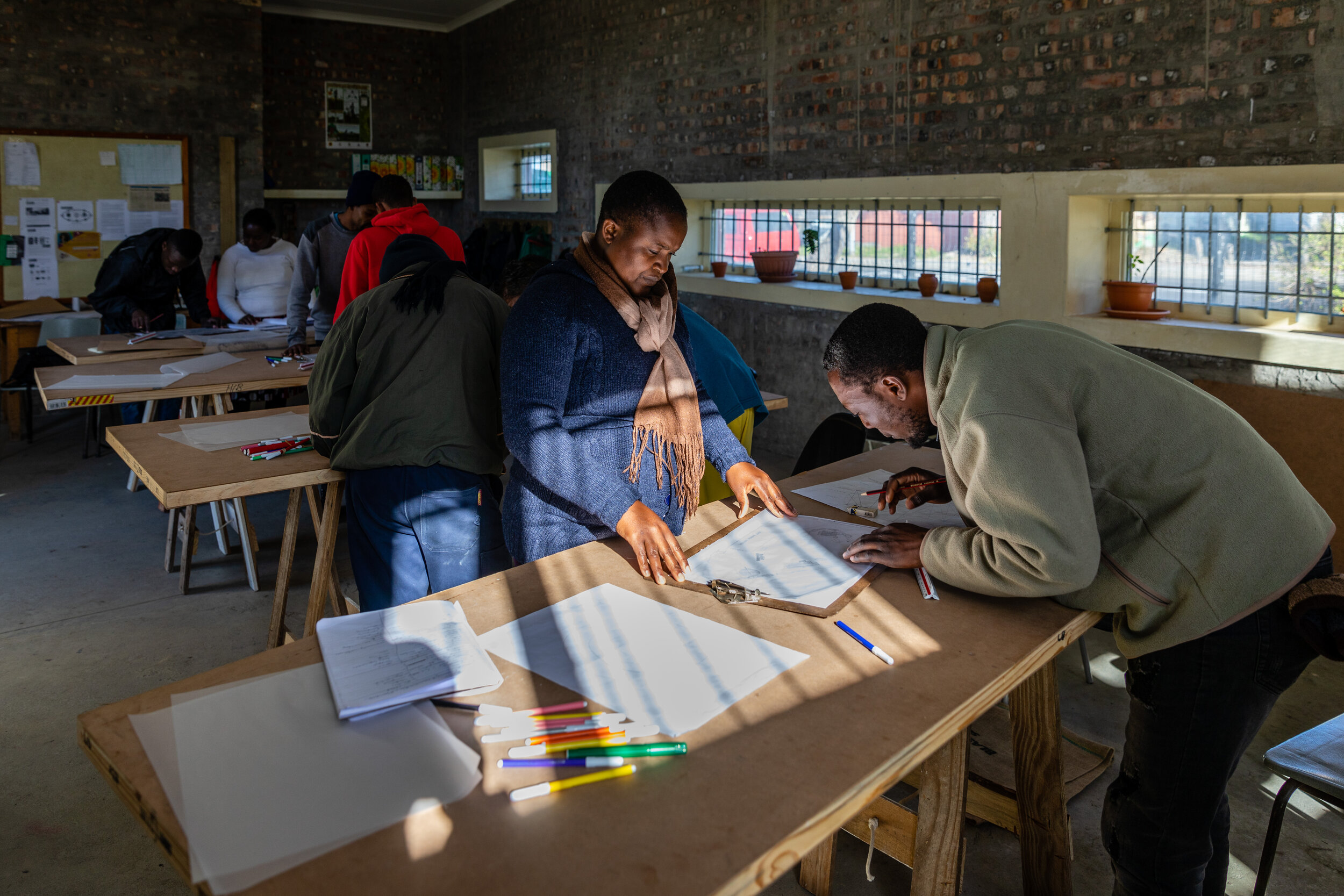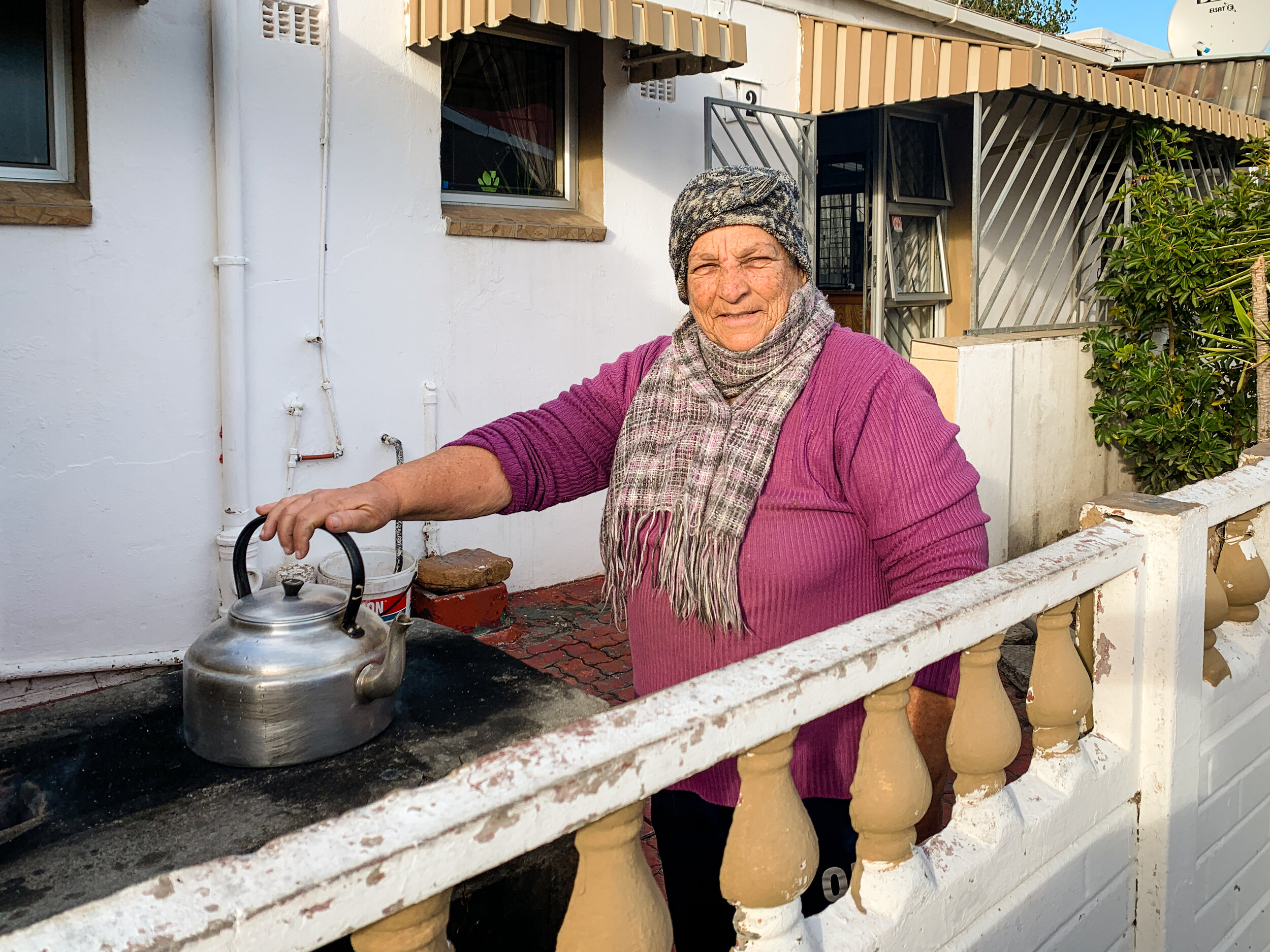Photo by Lou Gilbert
Words by Lou Gilbert and Darshel Diaz
“All the world’s problems can be solved in a garden,” reads a sign on the grounds of the non-profit organization SEED (Schools Environment Education and Development). Located in the township of Mitchell’s Plain, in Cape Town, South Africa; SEED aims to educate young people and adults on sustainable practices at a personal and community level. “With about 60 percent of our youth not able to find work, we believe it is important that we know how to look after ourselves especially in relation to food, water, energy, medicine and livelihoods,” said organization director, Leigh Brown.
Photo by Lou Gilbert
Brown describes the early work of this 19-year-old non-profit as being focused on growing outdoor classrooms at under-resourced schools. SEED teaches workshops on permaculture and educates people about soil, compost, water management, community gardens and gardening at home.
In recent years this environmental NGO has suffered major challenges, including significant funding losses, which brought some programs to a complete standstill. Neglected gardens died, and the two main SEED buildings were vandalized beyond use. Luckily, one program remained intact, thanks to the devotion of one staff member named Gail, who volunteered her services to keep the nursery plant program alive.
SEED staff member Gail, and her daughter Jessie, care for community gardens.
Photo by Lou Gilbert
Brown was determined to rebuild SEED from the ground up. She remembered the thousands of beneficiaries of the program who went on to change their lives and those around them, adding “a big part is connected to the natural world, an understanding of our place in the ecosystems that support us and a connection to the positive action people can take in their lives and communities”
Photo by Lou Gilbert
In 2019, with improved management systems in place and a small team, SEED re-launched and began their new permaculture design course. This 14-week training program covers the basics of permaculture design as well as urban regeneration, personal resilience and a job shadowing opportunity in a green enterprise. SEED is able to offer fully-funded training, through a bursary awards initiative that affords students from ‘previously disadvantaged’ communities the opportunity to further their studies (‘previously disadvantaged’ is a term used in South Africa that refers to an individual who belonged to a disenfranchised population group as a result of the apartheid system, even though many of these communities remain disadvantaged today as a result of long term inequity). This bursary scheme aims to redress the inequities of educational opportunities of that era.
Photos by Lou Gilbert
Blessed, a 27-year-old from the nearby township of Khayelitsha, is one recent participant of the program. “I want to learn about nature. I want the local community to showcase their talent to green their environment. People need to know how they can care about people, animals and the earth. There is so much we can do. I would like a job in design and landscaping. In the future, I might start my own business. I have to believe I will get a job after this course. I don’t know when it will come. But it will eventually.”
Sheba, a 34-year-old mother of two, has big plans after completing the course. She wants to open up her own business and is excited to be learning new skills that will help her achieve her goals.
Sheba, 34, travels for three hours to attend permaculture design training with SEED.
Photo by Lou Gilbert
Mitchell’s Plain is a challenging area to live and work – violence and related crimes including vandalism and robberies are realities community members are working to address and reduce. The first task in restoring the SEED’s education centre was to install burglar bars. “We’ve had many people ask us why we don’t do the program somewhere ‘easier’ - we believe we need inspiring demonstrations in all under-resourced communities - to show what is possible,” said Brown.
The work produced by SEED’s students this year is a testament to the success of the course, and it’s spreading to other parts of the community. Aunty Margaret, a local woman, was gifted with a rocket stove, an efficient hot burning stove using wood fuel. “Including my own family, I am now feeding up to 20 people a day using free vegetables I am given by a local farmer in the market. It makes me feel good,” she said.
Aunty Margaret prepares meals for her community using a new “rocket stove”.
Photo by Lou Gilbert
Using permaculture principles, community gardens including a medicinal herb garden, with water-wise gardening have been collaboratively developed by SEED students and local residents to help green local streets in Mitchell’s Plain. This is assisting in the development of climate resilience, proving the value of partnerships and participatory neighbourhood design processes.
To learn more about SEED and to support their work, click here.



















